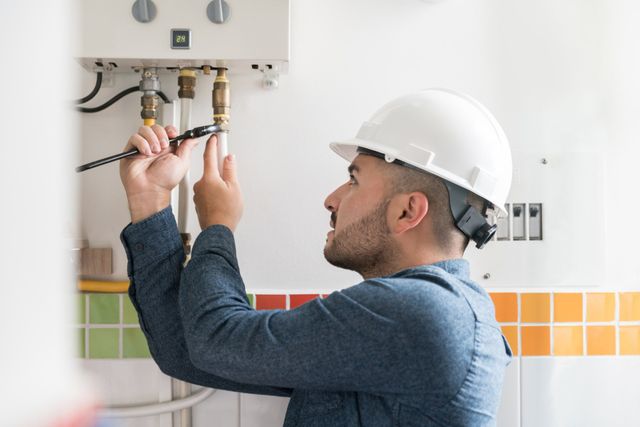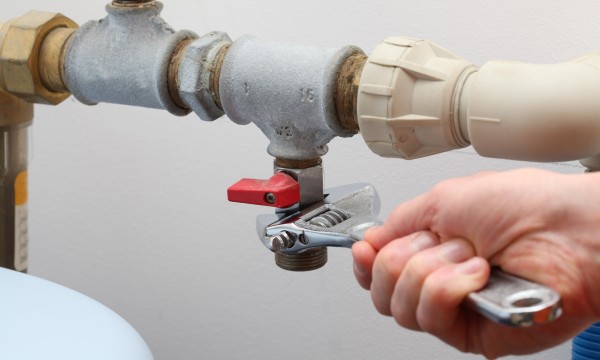Dealing with the Typical Water Heater Crisis Scenarios
Dealing with the Typical Water Heater Crisis Scenarios
Blog Article
What are your thoughts about The Importance of Water Heater Maintenance?

A water heater is one of the most crucial basic home appliances that can be found in a house. With hot water heater, you don't need to experience the stress and anxiety of heating water by hand whenever there is a demand to wash, wash, or the meals. There is always a possibility that your water heating unit would certainly act up as with the majority of mechanical gadgets.
It is necessary to keep in mind any kind of little malfunction and also tackle it rapidly before points leave hand. Many times, your water heater begins to malfunction when there is an accumulation of debris as a result of continuous usage. As a safety measure, routine flushing of your hot water heater is suggested to prevent debris accumulation as well as prevent useful failure.
Common hot water heater emergencies and also how to deal with them
Too little warm water
Taking care of an insufficient supply of hot water can be aggravating. It may be that the water heater can not support the warm water need for your apartment. To take care of this trouble, you could try to readjust your heater's temperature level dial as well as wait on a couple of minutes. If the issue continues, you can ask for the assistance of a specialist plumber. You could update your water heating system to one with a larger capacity.
Fluctuating water temperature.
Your water heater can begin producing water of various temperatures usually ice scalding or chilly hot. There might be a need to replace either the thermostat or the heating device of your water heating system.
Leaky water heater storage tank.
In this circumstance, you ought to turn off your water heating system, permit it to cool down, as well as thoroughly look for the source of the issue. At times, all you require to do is to tighten a few screws or pipe connections in situations of small leakages. If this doesn't work and the leakage persists, you may require to use the services of a service technician for a suitable substitute.
Discolored or stinky water
When this takes place, you require to understand if the problem is from the storage tank or the water resource. If there is no amusing odor when you run cool water, then you are specific that it is your water heater that is malfunctioning. The smelly water can be caused by corrosion or the buildup of germs or debris in the water heater container.
Final thought
Some house owners ignore little warning and minor faults in their water heater unit. This only brings about more damages as well as a feasible complete break down of your home appliance. You must handle your hot water heater mistakes as quickly as they come up to stay clear of more expenditures as well as unneeded emergency troubles.
With water heating systems, you don't require to go through the stress and anxiety of home heating water manually every time there is a demand to take a bath, do the washing, or the dishes. It may be that the water heating system can not sustain the warm water demand for your house. Your water heater might start producing water of various temperatures typically ice cool or hot hot. If there is no amusing scent when you run chilly water, after that you are particular that it is your water heater that is malfunctioning. The smelly water can be triggered by rust or the build-up of bacteria or sediments in the water heating unit storage tank.
Common Water Heater Issues and What You Should Do
What Type of Water Heater Do You Have?
Before we begin it’s first important that you identify the type of water heater you have on your property. There are two main types of water heaters out there: conventional and high efficiency.
Both of these types of products typically use either gas or electricity to heat power. There are also solar water heaters that use a thermal collector on the roof or yard to heat the water.
While these models are not as common, they can cut heating costs in half. In this article, we will focus on conventional and high efficiency.
How Do My Electric and Gas Water Heater Work?
Though they look similar, electric and gas water heaters work very differently. It’s important to know their basic function because often problems can be specific to the heating source.
In the electric model, a thermostat on the side of the machine detects the temperature of the water in the tank. When the temperature needs to rise electricity flows to a heating element suspended in the water.
Gas models also use a thermostat device — typically with a mercury sensor at the tip and an additional sensor called a thermocouple. The thermocouple detects whether the pilot light is on and controls the flow of gas.
When the thermostat drops below the appropriate level gas is released which becomes ignited by the pilot light. The flame heats the bottom of the water tank which causes hot water to rise and cold water to drop.
This natural circulation continues until the water reaches the desired temperature. Then, the thermostat triggers the gas control valve to shut off the flow of gas.
What Are the Most Common Issues and How Do You Fix Them?
https://happyhiller.com/blog/common-water-heater-issues-and-what-you-should-do/

We had been made aware of that editorial on Common Hot Water Heater Problems from an associate on our other web address. Sharing is caring. Helping others is fun. Thanks a lot for your time. Visit again soon.
Plumbing woes? Contact. Report this page